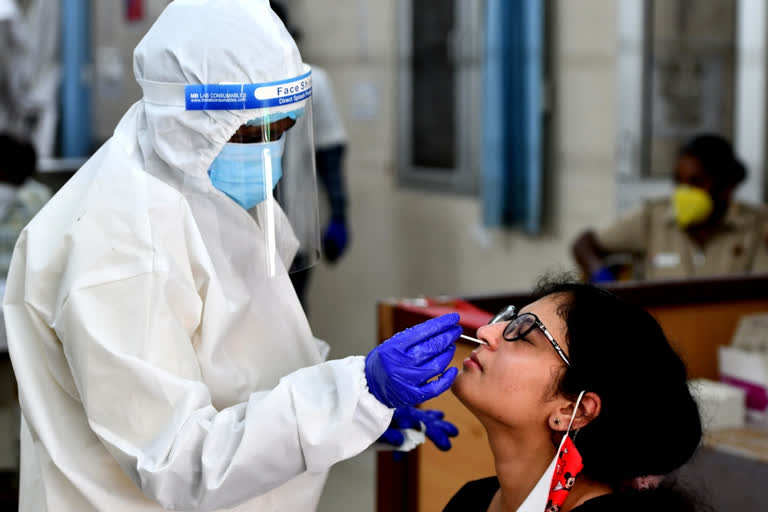New Delhi:As a large number of people showing no symptoms being detected for COVID-19, the Union health ministry on Thursday revised the home isolation guidelines to include asymptomatic positive patients in the list of mild or pre-symptomatic coronavirus infection cases.
However,patients suffering from immune-compromised status(like HIV, transplant recipients, cancer therapy) are not eligible for home isolation, the revised guidelines stated.
Also, elderly patients aged more than 60 years and those with co-morbid conditions such as hypertension, diabetes, heart disease, chronic lung/liver/kidney disease and cerebro-vascular disease among others shall only be allowed home isolation after proper evaluation by the treating medical officer.
Patients under home isolation will stand discharged after 10 days of onset of symptoms and no fever for three days, the guidelines stated.
"Thereafter, the patient will be advised to isolate at home and self-monitor their health for further seven days. There is no need for testing after the home isolation period is over," stated the Revised Guidelines for Home Isolation of Very mild/pre-symptomatic/asymptomatic COVID-19 cases'.
According to the document, asymptomatic patients like the ones who are pre-symptomatic and have very mild symptoms can opt for home isolation if they have the requisite self-isolation facility at their residence so as to avoid contact with other family members.
Also Read: Concentrate on more Rapid Antigen test for COVID-19; early hospitalisation: Amit Shah
The guidelines come against India's rising COVID-19 tally to 6,04,641 on Thursday, with a single-day increase of 19,148 cases, just five days after it crossed the 5 lakh mark. The death toll due to the disease rose to 17,834 with 434 new fatalities, according to health ministry data updated at 8 am.
According to the guidelines, a caregiver should be available to provide care on 24x7 basis and communication link between the caregiver and hospital is a prerequisite for the entire duration of home isolation.
Besides, the guidelines reiterated that the caregiver and all close contacts of such cases should take hydroxychloroquine as a preventive medication according to the protocol and as prescribed by the treating medical officer.
Besides, it calls for downloading the Arogya Setu mobile application and that it should remain active at all times (through Bluetooth and Wi-Fi).
